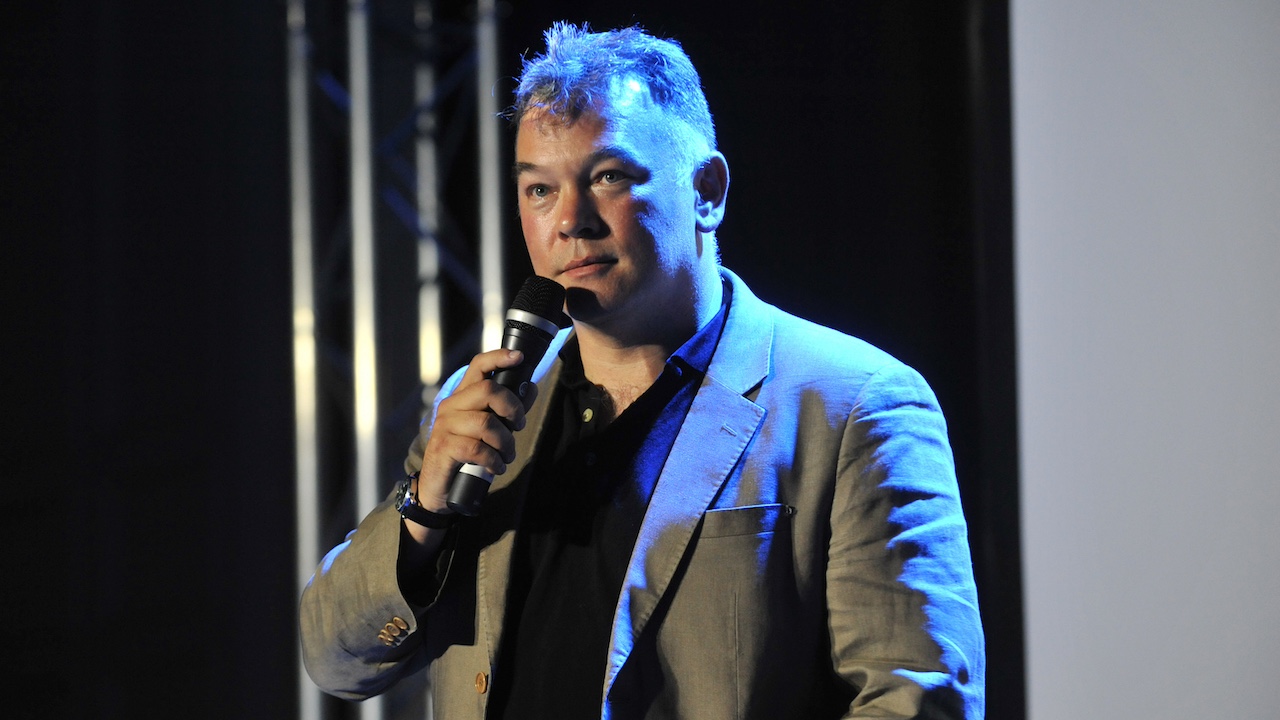
Stewart Lee is one of the UK’s best comedians, a point that will no doubt be reinforced when he embarks on a huge UK tour at the end of 2024 and into 2025 with his new show Stewart Lee Vs The Man-Wulf. He is also a diehard music fan – there’s even an extensive catalogue of album reviews he’s written on his website – and he has been known to meld the worlds of music and comedy. Next month, for example, he will road-test some new material at London’s The Lexington before handing the stage over to a music artist of his choosing to headline.
At the end of August, he’ll take the move into gig promoter one step further when he hosts and curates a stage at Brighton’s Psych Fest. Recently, he spoke to The New Cue about how he approached choosing the bill and ran through some of the artists he has booked. “I’m doing the one on the Friday at the Komedia in Brighton, which is a great privilege,” he said. “I tried to think about who would fit the bill of the festival and also people I liked. I tried to choose some things that were vaguely from that area, too.”
He has hand-picked artists including Secluded Bronte, Eliza Skelton, Alison Cotton, the Physics House Band and the Bevis Frond. Of the latter, Lee said: “If you know about psych music at all you must know them. They’ve been recording for 40 years, having bought a Portastudio with compensation money from Camden Council after Nick Saloman rode his motorbike through a pothole. He started pressing up his own albums in the early ‘80s and it snowballed. It’s like a combination of very heavy ‘60s psychedelia and indie pop, plus Robyn Hitchcock/Julian Cope English psychedelia. He’s a great songwriter. He articulates a particular kind of aging male doubt with real wit and precision. If you told him he’s a great improviser he’d be quite suspicious of that, but he is.”
Turning his mind to the upcoming Lexington shows, Lee recalled the era when alternative comedy was invented in the 80s and comedians would regularly open for bands. “I saw Peter Richardson of the Comic Strip opening for Dexys in 1982,” he said. “I saw Phil Jupitus when he was called Porky the Poet opening for Billy Bragg in 1983. And I saw Ted Chippington opening for The Fall in 1984, which was really my Sex Pistols at the 100 Club moment.”
Lee explained that he has never enjoyed opening for bands himself, even though he’s done it a few times across his career. “I opened for The Nightingales on tour, which was alright. Sleaford Mods at Hammersmith Apollo was great, but it didn’t really work at Ally Pally. It was like being on a platform at an Exhibition Hall. But the Lexington asked if I wanted to do something for their anniversary and I thought, I’ll open for some bands for two weeks because it’s quite difficult and it might kick my arse to really start on the next show. If I can write something robust enough to work for a standing audience at The Lexington then I can tinker about with it for the theatres. It’s a bit of a cheat, as well. Because a lot of the time my kids’ mum will be working and I’ll be looking after my daughter. I thought, if I can disguise seeing bands as work then that’ll be handy. So, I’m putting on Stewart Lee introduces The Garage Punk Greats.”
The comedian also hinted at what his forthcoming new show might look like. “Weirdly, with this show I know what it is, I just haven’t written it yet,” he said. “Normally, the process of writing it is the process of finding out. But I know what this will be. The first half will be me as me, doing the normal-ish material about things that I do, but ideally in a slightly more discursive way than usual. More talking to the audience. Running through that will be a thread of material about identity. Like, do we take on personas to achieve things? If you want to make $60 million a special as a stand-up, then you have to do nasty, reactionary material like Bill Burr, Jimmy Carr and Ricky Gervais: then you’ll get on Netflix. But how can I do that, because it’s not me? At the end of the first half, I turn into a werewolf. I do the second half as a kind of reactionary werewolf stand-up comedian, doing horrible material about minorities and stuff. In a costume, I’ll be able to physically get in the audience, because I’ll have a protected identity. Then that werewolf will get a really good deal off a streaming service to do his horrible act. That’s the idea, so I know what it’s going to be and I just need to colour it in. It seems really do-able.”
On top of all that, Lee also recently wrote the foreword to Ted Kessler’s book about Kent garage-rock maverick Billy Childish, To Ease My Troubled Mind: The Authorised Unauthorised History Of Billy Childish.







